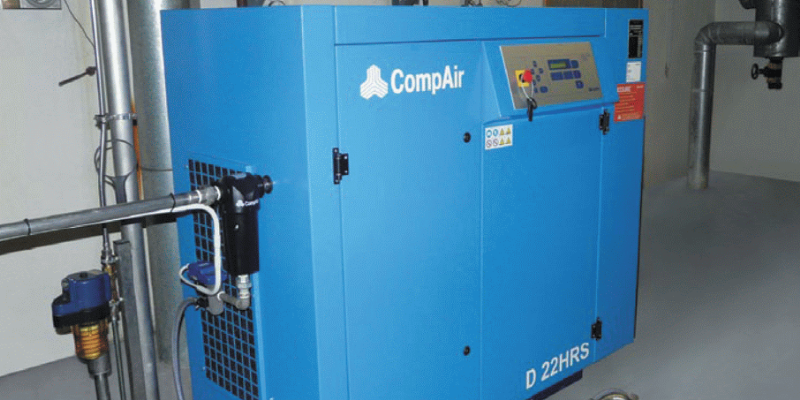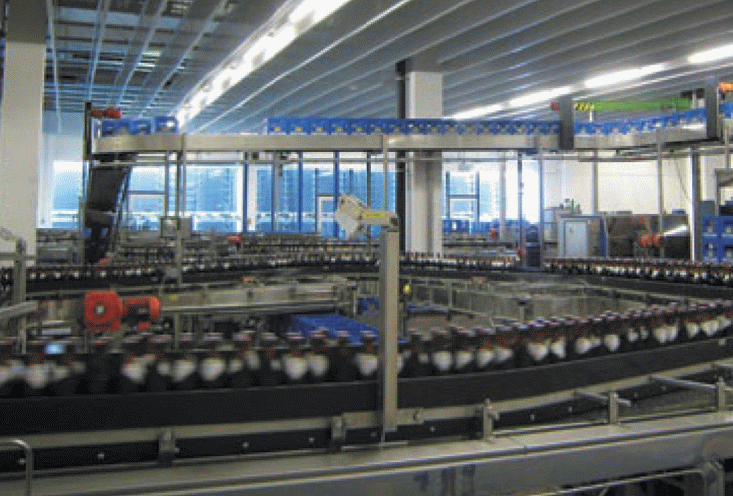 When it comes to the use of oil-free compressed air, instead of asking why you should use it, CompAir believes the question should be: why wouldn’t you? This is especially true for users in the food and beverage and pharmaceutical industries, where oil represents an unacceptable risk.
When it comes to the use of oil-free compressed air, instead of asking why you should use it, CompAir believes the question should be: why wouldn’t you? This is especially true for users in the food and beverage and pharmaceutical industries, where oil represents an unacceptable risk.
In many applications, compressed air purity is of paramount importance. One tiny drop of oil can spoil products or damage equipment, which can lead to costly production downtime and even costlier product rework if a batch is contaminated. Therefore, it makes perfect sense to remove the risk of oil contamination from your process completely. And that means using an oil-free compressor.
Aside from avoiding contamination issues, the use of oil-free compressors also means less time and resource is spent on air treatment systems which are needed to remove oil droplets in compressed air generated by oil lubricated compressors. And because there is no oil in the system, then there’s no oil to change or dispose of. Not only is this environmentally-pleasing, but it also simplifies maintenance.
For example, in CompAir’s water-lubricated DH models, the traditional oil system is replaced with simple water lubrication. This offers a range of advantages – purified water injected into the compression element lubricates, seals and cools the compression process; there is no gearbox and the associated lubrication, so compressor consumable costs are reduced; and with fewer moving parts there is less to go wrong, reducing lifetime compressor maintenance and hence costs.
Compressed air has a multitude of uses in the food and beverage industry, including product handling, nitrogen generation, air knives, and the generation of vacuum in packaging processes. In such applications, oil-free compressed air is not just a ‘nice to have’, strict air quality standards mean it’s a ‘must have’. The International Standards Organisation (ISO)?has established a new class of air quality for food and beverage manufacturers: Class 0. This stringent air quality class limits oil contamination in liquids, aerosols and vapours. Removing the risks means processors have the peace of mind that product batches will not be altered or spoilt, and there will be no health hazards for consumers.
Similar issues are common in the pharmaceutical industry. Spoilt batches can result in costly product recalls, and cause damage to a company’s reputation. With the widespread use of compressors in this industry, oil-free is once again, a necessity. Typical uses of compressed air include: controlling valves and cylinders, product drying, and as process air for cleaning, aeration and product moving.
In the chemical industry too, compressed air comes into contact with the process its serves, so quality is critical. Like the aforementioned industries, in chemical processing, there can be no compromise in end product quality, so a reliable supply of contaminant-free air is a must.
 Achieving oil-free
Achieving oil-free
So, we now know the importance of oil-free air, but how do we go about achieving it? CompAir offers a range of products designed to provide 100% oil free air.
The DH range of rotary screw compressors uses water injection to lubricate, seal and cool. It operates at low temperatures, with the associated benefits of reduced energy consumption.
The Quantima oil-free air compressor offers a low environmental impact. It’s Q-drive compression assembly has no gearbox, no oil, no contact and no mechanical wear, just a single moving part spinning in a magnetic field. CompAir has recently extended the range with the launch of a lower-pressure model, capable of operating at 3 to 5 bar, which is suitable for blower type applications.
Other compressors in the oil-free range include the D Series, the V-Major and V-Compact and the Champion.
In order to help compressed air users understand the advantages of oil-free technology, CompAir has developed a website, www.oilfreecompressors.net, where the complete range is showcased. The website also provides practical advice on how manufacturers can reduce maintenance and costs by switching to oil-free.
And how do the compressors perform in real-life applications? One example is the use of a CompAir variable speed, oil-free compressor in an application at the Weihenstephan brewery near Munich, where it has helped achieve a 30% reduction in compressed air energy costs.
Brewing is an energy-intensive process. As well as electricity, nearly all of the core processes at the brewery require compressed air and steam.
The brewery’s existing compressed air system contains two CompAir oil-free piston compressors that supply 7.8m3 and 10m3 of compressed air per minute respectively. One of the compressors operates at full load and the other at half load – providing an economical solution when the brewery is operating at full capacity from Monday to Friday, but not when production is reduced on night shifts and weekends.
The company therefore began to look for a compressor that could economically provide these smaller output volumes, and opted for a CompAir oil-free, variable speed D22H RS compressor. Featuring PureAir technology, the compressor generates totally oil-free compressed air, suitable for the brewery’s stringent hygiene requirements.
Water is used to lubricate, seal and cool the compression process, providing low compression temperatures of 60°C – contributing to low power consumption. Variable-speed drive technology matches compressor flow to demand, so the unit produces the correct volume of air required by the application at all times.
Taking over the base load on Friday afternoon, the D22H RS ensures a constant pressure level at lower speeds during the weekend until the brew house returns to full operation on Sunday evening. This allows the brewery to cover all load situations and avoid unnecessary idling costs when the demand for compressed air is low.
CompAir
T:?01527 838200
